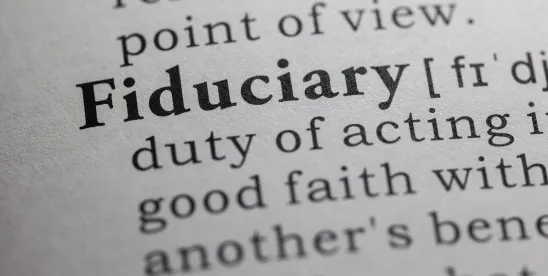In July, two federal district courts in Texas stayed the effective date (slated for 23 September) of the Department of Labor’s (DOL’s) amended fiduciary rule that would define when a financial professional is acting as a “fiduciary” under ERISA by virtue of providing nondiscretionary investment advice to participants in 401(k) plans, IRAs, and similar clients. On Friday 20 September 2024, the DOL informed the courts that the DOL is appealing to the United States Court of Appeals for the Fifth Circuit to reverse the lower courts’ decisions.
Until further judicial determination, financial institutions should continue to use the five-part test for determining whether the financial institution is acting as an investment advice fiduciary. Under the five-part test, nondiscretionary investment advice is fiduciary advice if the person:
- Renders advice as to the value of securities or other property or makes recommendations as to the advisability of investing in, purchasing, or selling securities or other property;
- On a regular basis;
- Pursuant to a mutual agreement, arrangement, or understanding with the plan or a plan fiduciary that;
- The advice would serve as a primary basis for investment decisions with respect to plan assets; and that
- The advice was individualized based on the particular needs of the plan.
All five parts of the test must be met for a person to be deemed a nondiscretionary investment advice fiduciary. Financial institutions acting as investment advice fiduciaries may use the version of Prohibited Transaction Exemption 2020-02 that was published in the Federal Register on 18 December 2020 to address prohibited transactions.





 />i
/>i
